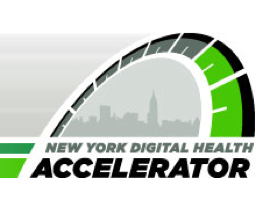“How Facebook Saved My Son’s Life” -it’s hard to think of a more dramatic headline than that one from Slate. Last week a mother posted an article about her experience. In brief, her son got sick, son’s doctor suspected strep, son got worse, mom posted a photo of her son on Facebook, three dozen people commented on it, and one –a film actress and former neighbor– called to say,
“How Facebook Saved My Son’s Life” -it’s hard to think of a more dramatic headline than that one from Slate. Last week a mother posted an article about her experience. In brief, her son got sick, son’s doctor suspected strep, son got worse, mom posted a photo of her son on Facebook, three dozen people commented on it, and one –a film actress and former neighbor– called to say,
“I hope you’ll excuse me for butting in,” she said, “But you have to get to the hospital. Now.” Her son Max had had the exact same symptoms, and was hospitalized for Kawasaki disease, a rare and sometimes fatal auto-immune disorder that attacks the coronary arteries surrounding the heart. “The longer you wait,” she said, “the worse the damage.”
Other comments by doctor friends and relatives persuaded mom to zip son to the hospital. Eventually Kawaski disease was diagnosed and son began treatment. Son is doing better now, but still recovering and may not get back to 100 percent. Mom has become a big fan of Facebook based on this episode and subsequent success using the service as a support network.
This is a nice story with a fairly happy ending but it makes me nervous to think this is somehow what a parent needs to do to keep their kid safe. What about all those Facebook users out there who don’t have the kinds of networks that this mom did? (It reminded me when I went on a tour of FBI headquarters in the 1970s. The tour guide showed us pictures of the 10 most wanted and said tour group members had identified several suspects over the years. My father told me that if this was the best tool the FBI had to find fugitives we were in worse shape than he thought.)
I asked SimulConsult CEO and pediatric neurologist Michael Segal MD PhD for his opinion about this phenomenon.
It is hit-or-miss doing social network diagnosis with laypeople, but of course this story is a triumph of signal over noise. Social network diagnosis works really well, though, with doctors involved, whose experience is orders of magnitude larger than that of non-clinician parents. This is the sort of things doctors do on rounds, what we do on doctor listservs, and the sort of thing we make computable in SimulConsult (we don’t currently cover this group of diseases but are gearing up to do so).
As a pediatric resident I remember Kawasaki disease being one of those diseases that was stressed as one that could get much worse if not dealt with promptly. However, if a disease is rare and the message is not reinforced often, one can forget the details. For this reason it is crucial to build in systems that remember the details.
The prior probability for suspecting strep goes a long way to explain how the doctors got sidetracked, but playing the odds and focusing on the horse instead of the zebra often works. SimulConsult has a blended approach that tries to get the best of both these approaches. It looks harder for disease in which intervention makes a huge difference, so even if such a disease is not ranked as #1, SimulConsult might focus suggested workup more on this disease than on diseases for which rapid intervention is not so important.
I’m hopeful stories like these will hasten physician use of systematic, computerized approaches to speed up correct diagnosis of rare disorders.







